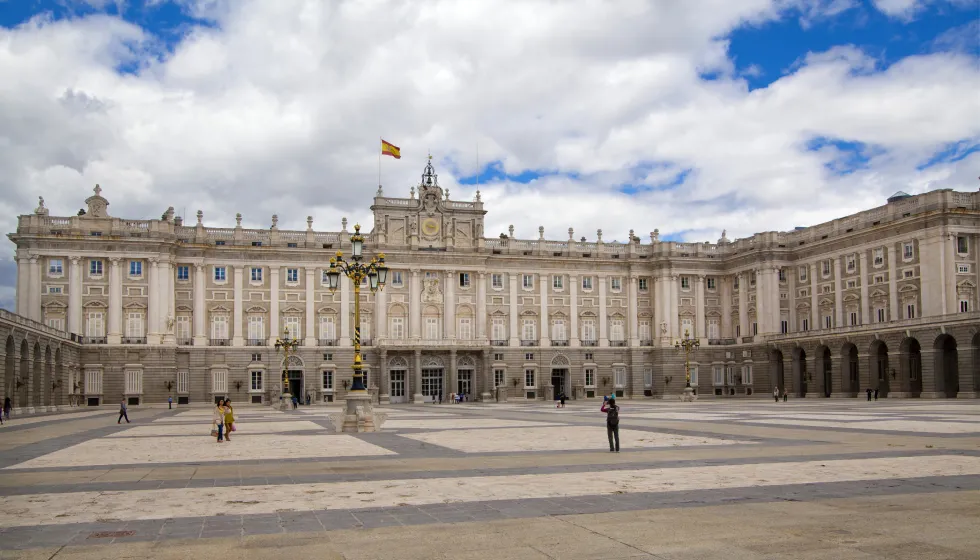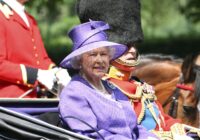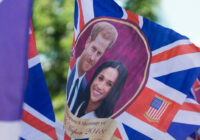Recently appointed British Prime Minister Keir Starmer pledged his loyalty to British King Charles III on July 6, 2024, continuing a centuries-old tradition. However, since Prime Minister David Lloyd George took over the leadership role in World War I, the monarchy’s political influence has become progressively ceremonial and even more precarious since the death of the late Queen Elizabeth II in 2022.
This trend is not unique to the UK; in recent centuries, the role of royalty in politics has declined considerably worldwide. As political ideals began challenging royal authority in Europe, European colonial powers undermined their authority overseas. The strain of World War I helped cause several European monarchies to collapse, and World War II diminished their numbers further. After, the Soviet Union and the US divided Europe along ideological lines and sought to impose their communist and liberal democratic ideals elsewhere, and the remaining monarchs faced accelerating marginalization.
Today, fewer than 30 royal families are politically active on a national scale. Some trace their lineages back more than a millennium, like Japan’s and the UK’s, while Belgium’s is less than 200 years old. Several have adapted by reducing political power while maintaining cultural and financial relevance, while others have retained their strong political control. Their various methods and circumstances make it challenging to determine where royals may endure, collapse, or return.
European monarchies exercise soft power
Alongside the UK, the royals of Belgium, Spain, Sweden, Norway, Denmark and the Netherlands have all seen their powers become largely ceremonial. Smaller European monarchical states like Andorra and the Vatican City are not hereditary, while Luxembourg, Monaco and Liechtenstein are — though only the latter two still wield tangible power.
Attempts to exercise remaining royal political power have often highlighted its increasing redundancy. Belgian King Baudouin’s refusal to sign an abortion bill in 1990 saw him declared unfit to rule before being reinstated once it passed. Luxembourg’s Grand Duke Henri, meanwhile, lost his legislative role in 2008 after refusing to sign a euthanasia bill. Due to increasing scrutiny of Queen Beatrix’s influence, the Dutch parliament transferred the Dutch monarch’s role in forming coalition governments to parliament in 2012, depriving her of the ability to dissolve parliament.
The British monarch’s decline in political influence is also evident, but it can still prove helpful. The royal family uses its global popularity to project soft power, while royal visits can help seal important agreements, particularly in countries with other royal families. The leaders of 14 other countries also pledge allegiance to King Charles III as their head of state.
Additionally, the monarchy can bypass certain democratic processes. In 1999, the British government advised Queen Elizabeth II to withhold Queen’s Consent, preventing parliamentary debate on the Military Action Against Iraq Bill, which would have restricted the ability to take military action without parliamentary approval.
Royal efforts to cultivate soft power and maintain a positive public image have also been crucial for their survival. Many see Belgium’s royal family as an essential source of political stability and unity. In Spain, former King Juan Carlos played a leading role in the country’s transition to democracy in the 1970s. Modernizing their image as neutral political guardians with relatable attributes who engage in advocacy and humanitarian work often gives European royal families higher approval ratings than politicians.
Royal families have also downsized in recent years to exercise discretion and reduce costs. In 2019, Sweden’s king removed royal titles, duties and some privileges from five of his grandchildren. The Danish queen implemented similar changes in 2022. Norway’s royal family now consists only of the King, Queen, Crown Prince and Princess, while the British royal family has hinted at further reducing its current number of 10 “working royals.”
Despite these efforts, European royal families continue to face scandals and intense public and media scrutiny. In 2020, Spanish and Swiss authorities began investigating former Spanish King Juan Carlos for allegedly receiving $100 million from a deal with Saudi Arabia. In 2023, Belgium’s Prince Laurent was accused of fraud and extortion by Libya’s sovereign wealth fund. The UK royal family’s recent treatment of Megan Markle and the departure of Prince Harry and Prince Andrew’s association with Jeffrey Epstein have also rocked Britain. Since the death of Queen Elizabeth II in 2022, record low support has reinforced the unprecedented challenges facing the British monarchy. The King’s and Princess Kate’s cancer diagnoses have also added to the sense of fragility.
Cultural shifts, concern over royal expenses and increasing political irrelevance have threatened European royal families. Movements like the Alliance of European Republican Movements, created in 2010 to abolish monarchies altogether, reflect the increasing disregard for royal power.
The opaque nature of royal finances, however, has granted some respite. Grand Duke Henri of Luxembourg’s $4 billion officially makes him Europe’s richest royal. However, suspicions abound regarding billions more in assets like trusts, jewelry and art collections that point to more significant degrees of wealth.
Extensive efforts go into hiding these fortunes. Liechtenstein’s royal family operates a bank criticized by the US Senate for aiding clients in tax evasion, dodging creditors and other misconduct. Queen Elizabeth II once used the Queen’s Consent to change a draft law so that her wealth remained concealed, while the Panama Papers leaks revealed huge undisclosed European royal assets. Europe’s poorest royal family in Belgium saw King Phillippe declare the monarchy’s wealth at roughly £11 million in 2013, but the European Union Times estimated it at £684 million.
The estimated net worth of King Charles ranges from $750 million to over $2 billion, while the collective fortune of the British royal family, also referred to as “the Firm,” is estimated to be between $28 billion and almost $90 billion. Britain’s monarchs also enjoy more institutionalized ties to national wealth than other European royals. Through the peerage system that upholds British nobility, a network of support from wealthy Dukes, Marquesses, Earls, Viscounts and Barons helps the monarchy remain firmly entrenched in the UK’s wealth centers.
Outside Europe, monarchies are in decline too
Royal families in the Asia-Pacific consist of Thailand, Malaysia, Cambodia, Brunei, Japan and Tonga. Thailand’s King is the world’s richest, with a net worth of $43 billion. However, he faces his own controversies relating to personal scandals and the use of political powers that have led to an anti-monarchy movement. Malaysia has a rotational system of nine sultans who rule their states and serve as head of state every five years. While the sultans’ formal authority is limited, they command influence in cultural and religious matters, and despite constitutional amendments curtailing their powers, they occasionally intervene in politics. In Cambodia, the monarchy is similarly politically and culturally influential.
Brunei’s absolute monarchy has granted its Sultan, Hassanal Bolkiah, supreme authority over his country for more than 50 years. His $288-billion fortune makes him the second-richest monarch in the world. As a microstate, Brunei’s influence in international affairs is limited. The reduced power of Japan’s monarchy since 1945 has made it most like European monarchies, though its powers have remained steady. In sub-Saharan Africa, partnerships with British colonial authorities have allowed Lesotho’s monarchy to retain largely ceremonial influence, while Eswatini’s King Mswati III exerts strong control over the country. Nonetheless, alongside Europe, most regions have seen general declines in royal power over decades.
Arab monarchies retain a tight grip on power
Bucking the trend of decline is the Middle East, where monarchies previously had limited authority under the Ottoman Empire. Its collapse after World War I allowed them to increase their power considerably, even those under loose French and British protectorates.
By exploiting their increasingly valuable resource reserves, Gulf monarchies have thrived. Today, absolute monarchies exist in Saudi Arabia, the United Arab Emirates (UAE), Bahrain, Oman, Qatar and Kuwait with complete control over media, government branches and law enforcement. No opposition is tolerated, and they are backed by religious lobbies that reinforce their status as custodians of cultural traditions. Despite the heavy-handed approach, they largely enjoy strong support, even among the youth. The Saudi Crown Prince has long been popular among younger Saudis in particular.
As in Europe, Middle Eastern royal wealth is often hidden and difficult to discern. Estimates for the combined wealth of the Saudi royal family range from roughly $100 billion to $1.4 trillion. Other estimates put the UAE’s Al Nahyan family of Abu Dhabi as the most affluent royal family in the world, with more than $300 billion in wealth. The royal families of Kuwait and Qatar often possess fortunes that people frequently measure in the hundreds of billions.
The other Middle Eastern royal families in Oman, Jordan and Morocco have less influence but still more so than in Europe. They have also withstood democratization pressures by promoting stability. During the Arab Spring, as other Middle Eastern states faced revolutions and civil wars, the monarchies and their political systems survived in place.
However, the downfall of royal families in Egypt, Tunisia, Iraq, North Yemen, Libya and Iran during the 20th century shows the risks of instability. Today, this often comes from within the royal families themselves. Saudi royal disputes regularly play out in public, including a mass purge in 2017. In 2023, Jordan’s crown prince was placed under house arrest for an attempted coup, only to emerge days later and pledge loyalty to the king. A 2017–2021 crisis meanwhile saw Saudi Arabia, the UAE, Bahrain and Egypt sever diplomatic relations and blockade Qatar following accusations of supporting terrorism and supporting Iran.
Worldwide, monarchs show solidarity and occasional signs of strength
While some of their positions may be precarious, royal families maintain some solidarity among them. Marriages between European royals throughout history mean that the current ruling royals in Europe are all related, similar to some Middle Eastern monarchies. Following controversy over corruption allegations, Spain’s Juan Carlos lived in exile in the UAE for two years.
Royals have also taken more active roles to support one another. The British royal family played a significant diplomatic role in supporting the Arab monarchs against the Ottoman Empire in World War I. In 1962, the British monarchy, which had a close relationship with the Brunei monarchy, helped lobby to send British forces to the country and quash an armed rebellion, maintaining British influence in Southeast Asia.
Other royal families could still return to power. Spain restored its monarchy in 1975, and Cambodia later did in 1993, making it the latest to be reintegrated into politics, leaving more than 20 royal families with no country to reign over. In Romania in 1992, an estimated one million people took to the streets to welcome former King Michael, who abdicated in 1947. The daughter of former King Michael, Margareta of Romania, now lives in Elisabeta Palace in Bucharest and other family members have taken a growing role in politics.
Bulgaria’s former Tsar, Simeon II, lived in Spain after being overthrown in 1946 and returned to Bulgaria after the communist government crumbled, serving as prime minister from 2001 to 2005. Albania’s Prince Leka, grandson of former King Zog I, attempted to reinstate the monarchy in a 1997 referendum but failed. In 2007, family members of former Italian King Umberto II sought damages for their exile and the return of assets, countered by Italy’s government suing for damages due to royal collusion with Mussolini.
The case of the Italian royal family shows how disputes involving exiled royals can have political implications. Greece’s royal family now lives in London and frequently appears at royal functions. Meanwhile, members of Iran’s former royal family and descendants of Ethiopia and Russia’s royal family live in the US Although there is no current method or desire to launch a political movement to put them back into power, leveraging diaspora communities’ support for royalty can still help host governments wield influence through them.
Having survived fascism and communism, monarchies have largely relinquished political power in the modern liberal world order. Yet, as symbols of state continuity, some monarchs have maintained their relevance by providing long-term stability. While incompatible with communism, royalty’s adaptability to democratic and fascist regimes highlights their resilience. Their ability to reinvent themselves and demonstrate their usefulness to contemporary politics may secure their survival — though their dwindling numbers suggest this will remain challenging.
[Independent Media Institute produced this piece.]
[Liam Roman edited this piece.]
The views expressed in this article are the author’s own and do not necessarily reflect Fair Observer’s editorial policy.
Support Fair Observer
We rely on your support for our independence, diversity and quality.
For more than 10 years, Fair Observer has been free, fair and independent. No billionaire owns us, no advertisers control us. We are a reader-supported nonprofit. Unlike many other publications, we keep our content free for readers regardless of where they live or whether they can afford to pay. We have no paywalls and no ads.
In the post-truth era of fake news, echo chambers and filter bubbles, we publish a plurality of perspectives from around the world. Anyone can publish with us, but everyone goes through a rigorous editorial process. So, you get fact-checked, well-reasoned content instead of noise.
We publish 2,500+ voices from 90+ countries. We also conduct education and training programs
on subjects ranging from digital media and journalism to writing and critical thinking. This
doesn’t come cheap. Servers, editors, trainers and web developers cost
money.
Please consider supporting us on a regular basis as a recurring donor or a
sustaining member.
Will you support FO’s journalism?
We rely on your support for our independence, diversity and quality.











Comment